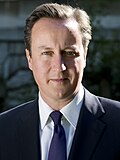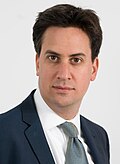| |||||||||||||||||||||||||||||||||||||||||||||||||
All 533 English seats to the House of Commons 267 seats needed for English majority | |||||||||||||||||||||||||||||||||||||||||||||||||
|---|---|---|---|---|---|---|---|---|---|---|---|---|---|---|---|---|---|---|---|---|---|---|---|---|---|---|---|---|---|---|---|---|---|---|---|---|---|---|---|---|---|---|---|---|---|---|---|---|---|
| Turnout | 65.9% ( | ||||||||||||||||||||||||||||||||||||||||||||||||
| |||||||||||||||||||||||||||||||||||||||||||||||||
 A map of English parliamentary constituencies *Seat figure does not include the Speaker of the House of Commons, John Bercow, who was included in the Conservative seat total by some media outlets. | |||||||||||||||||||||||||||||||||||||||||||||||||
The 2015 United Kingdom general election in England was held on Thursday, 7 May 2015 for 533 English seats to the House of Commons. The Conservatives won a majority of seats in England for the second time since 1992.
Contents
- Political context
- Results summary
- Analysis
- Regional results
- East Midlands
- East of England
- London
- North East England
- North West England
- South East England
- South West England
- West Midlands
- Yorkshire and the Humber
- Campaign events
- Target seats
- Conservative Party
- Labour Party
- Liberal Democrats
- UKIP
- Green Party
- Opinion polling
- Endorsements
- Donations
- See also
- References
- External links
Both major parties made gains at the expense of the Liberal Democrats, whose support collapsed to its lowest level since 1970. Their vote share declined by 16 percentage points, and the party lost 37 of its 43 seats. The party won 6 seats and 8% of the vote overall. This was the worst result for the Lib Dems or the Liberals in 45 years, while the 16-point drop in vote share was the biggest decline in Lib Dem or Liberal support since 1931.
Although Labour increased their share of the vote by 4% and gained 15 seats, the Conservatives made 21 gains for a total of 318, including winning 6 seats directly from Labour. Together with seats from Scotland and Wales, this allowed the Conservatives to form a majority government with 330 seats, leading to the first majority Conservative government since 1992.


